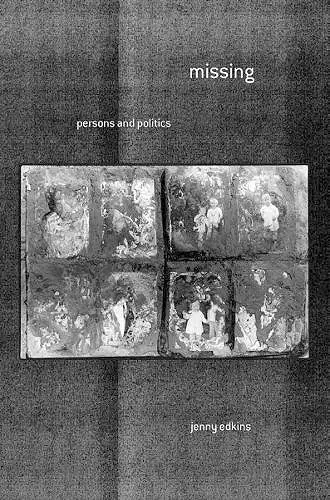Missing
Persons and Politics
Format:Paperback
Publisher:Cornell University Press
Published:15th Sep '16
Should be back in stock very soon

Stories of the missing offer profound insights into the tension between how political systems see us and how we see each other. The search for people who go missing as a result of war, political violence, genocide, or natural disaster reveals how forms of governance that objectify the person are challenged. Contemporary political systems treat persons instrumentally, as objects to be administered rather than as singular beings: the apparatus of government recognizes categories, not people. In contrast, relatives of the missing demand that authorities focus on a particular person: families and friends are looking for someone who to them is unique and irreplaceable.
In Missing, Jenny Edkins highlights stories from a range of circumstances that shed light on this critical tension: the aftermath of World War II, when millions in Europe were displaced; the period following the fall of the World Trade Center towers in Manhattan in 2001 and the bombings in London in 2005; searches for military personnel missing in action; the thousands of political "disappearances" in Latin America; and in more quotidian circumstances where people walk out on their families and disappear of their own volition. When someone goes missing we often find that we didn't know them as well as we thought: there is a sense in which we are "missing" even to our nearest and dearest and even when we are present, not absent. In this thought-provoking book, Edkins investigates what this more profound "missingness" might mean in political terms.
In this scholarly but deeply affecting analysis, Edkins discusses how societies have responded to people who have disappeared—as a consequence of war, state violence, and natural disaster. She focuses on 'the search for those missing in the aftermath' of WWII, Argentina's 'dirty war,' the Sept. 11 attacks, and the 2005 London bombings. While the loss of someone 'may appear to be a very private experience' and 'outside politics,' Edkins writes that 'our fates are intertwined,' and our responses to the loss of even one member of our community tells us what kind of society we are. Most potent is her examination of those missing in the wake of the Sept. 11 attacks—for its heartbreaking detail and for the author’s ability to derive larger theories from her observations. She reminisces about how 'the cloud of dust that hung over Manhattan for some days would be all that lingered of many of the dead.' She meditates upon the psychology of the searcher hanging photographs of their missing friend or relative, and how those missing persons posters, which remained hanging long after the tragedy, were a 'collective scream... a refusal to close over the trauma of a loss' and 'a symbolic reminder too that these people are indeed missing... not dead. 'The dead have corpses.' A haunting and philosophical elegy.
* Publishers WeekISBN: 9781501705649
Dimensions: 235mm x 155mm x 18mm
Weight: 907g
296 pages